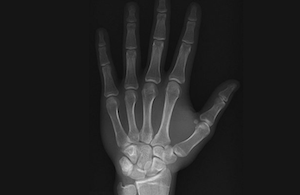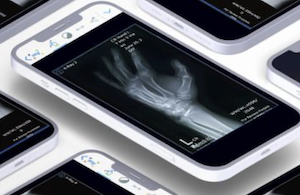How Do I Get My Medical Images?
Answers To Your Questions
Can I get my medical images?
Yes, your medical data is yours. The “21st Century Cures Act,” was updated in April 2023 to ensure that patients have access to their medical records. Under the HIPAA Privacy Rule, you have a right to access your medical images in the form and format you request.
Where do I go to get my medical images?
You can obtain your medical images from the facility where they originated, be it a hospital, an imaging center, or your doctor’s office. Note that in most cases, these facilities are only required to keep your images for 7 years, so older images may not be available.
Who do I ask for my medical images?
You can either call, or visit the facility in person to request your images. Usually, it’s as simple as asking at the front desk, or you can contact the hospital’s radiology or medical records department. In most instances, you will be given your medical images on a CD, which can then be uploaded to mymedicalimages.com.
What do I need to get my medical images?
Many hospitals require a written request to release medical images. This is likely a specific form that you need to fill out, and can be available either in person at the facility or on their website. If you are getting images for someone other than yourself, that person will need to provide consent and sign a HIPAA release form in order for the facility to provide the images.
When filling out the forms, you’ll likely need to provide your personal details (like full name, date of birth, and contact information), the type of images you’re requesting (e.g., X-ray, MRI, CT scan), and the dates of the scans, if known.
Be prepared to show or provide a copy of a valid photo ID to verify your identity. This is a standard procedure to protect your privacy.
Will I be charged for my medical images?
Some facilities may charge for copies of your medical records or images. Always inquire about any associated costs and payment methods when first asking for a copy of your medical records, as it will vary from location to location.
Bottom line:
Your medical images are a critical component of your health history. Gathering them in diagnostic format (DICOM) from various locations and placing them in a secure cloud ensures that your images can be easily accessed and quickly shared with medical professionals whenever required.
Do you have other questions?
Contact mymedicalimages Customer Support at support@mymedicalimages.com
or call 1-800–203–4771
Sources:
Cusack, Caitlin M., MD, MPH Insight Informatics; Lisa M. Masson, MD, MBA, Cedars-Sinai;, Richard Trepp, MD, Columbia Univ, and Dept of Emergency Medicine. 2022. “The 21st Century Cures Act Part Two: Information Blocking and Interoperability | HIMSS.” August 24, 2022. https://www.himss.org/resources/21st-century-cures-act-part-two-information-blocking-and-interoperability
“Information Blocking.” HHS, July 5, 2023. https://oig.hhs.gov/reports-and-publications/featured-topics/information-blocking/
“Evaluation of the Patient Request Process for Radiology Imaging in U.S. Hospitals”, Nye, Caroline, et al., Radiology, 2019 https://pubmed.ncbi.nlm.nih.gov/31184560/
More Articles
Should I save my medical images?
Having quick access to your medical images in an emergency could be critical. But having immediate access to your medi…
Taking Orthopedic Care to the Next Level
mymedicalimages.com has partnered with OrthoNOW, a Florida-based network of immediate orthopedic care centers, to provide a faste…
Caroline’s Story
Caroline’s StoryThe National Pediatric Cancer Foundation (NPCF) and mymedicalimages are working toget…
How Do I Get My Medical Images?
Answers To Your Questions
Can I get my medical images?
Yes, your medical data is yours. The “21st Century Cures Act,” was updated in April 2023 to ensure that patients have access to their medical records. Under the HIPAA Privacy Rule, you have a right to access your medical images in the form and format you request.
Where do I go to get my medical images?
You can obtain your medical images from the facility where they originated, be it a hospital, an imaging center, or your doctor’s office. Note that in most cases, these facilities are only required to keep your images for 7 years, so older images may not be available.
Who do I ask for my medical images?
You can either call, or visit the facility in person to request your images. Usually, it’s as simple as asking at the front desk, or you can contact the hospital’s radiology or medical records department. In most instances, you will be given your medical images on a CD, which can then be uploaded to mymedicalimages.com.
What do I need to get my medical images?
Many hospitals require a written request to release medical images. This is likely a specific form that you need to fill out, and can be available either in person at the facility or on their website. If you are getting images for someone other than yourself, that person will need to provide consent and sign a HIPAA release form in order for the facility to provide the images.
When filling out the forms, you’ll likely need to provide your personal details (like full name, date of birth, and contact information), the type of images you’re requesting (e.g., X-ray, MRI, CT scan), and the dates of the scans, if known.
Be prepared to show or provide a copy of a valid photo ID to verify your identity. This is a standard procedure to protect your privacy.
Will I be charged for my medical images?
Some facilities may charge for copies of your medical records or images. Always inquire about any associated costs and payment methods when first asking for a copy of your medical records, as it will vary from location to location.
Bottom line:
Your medical images are a critical component of your health history. Gathering them in diagnostic format (DICOM) from various locations and placing them in a secure cloud ensures that your images can be easily accessed and quickly shared with medical professionals whenever required.
Do you have other questions?
Contact mymedicalimages Customer Support at support@mymedicalimages.com
or call 1-800–203–4771
Sources:
Cusack, Caitlin M., MD, MPH Insight Informatics; Lisa M. Masson, MD, MBA, Cedars-Sinai;, Richard Trepp, MD, Columbia Univ, and Dept of Emergency Medicine. 2022. “The 21st Century Cures Act Part Two: Information Blocking and Interoperability | HIMSS.” August 24, 2022. https://www.himss.org/resources/21st-century-cures-act-part-two-information-blocking-and-interoperability
“Information Blocking.” HHS, July 5, 2023. https://oig.hhs.gov/reports-and-publications/featured-topics/information-blocking/
“Evaluation of the Patient Request Process for Radiology Imaging in U.S. Hospitals”, Nye, Caroline, et al., Radiology, 2019 https://pubmed.ncbi.nlm.nih.gov/31184560/
More Articles
Should I save my medical images?
Having quick access to your medical images in an emergency could be critical. But having immediate access to your medi…
Taking Orthopedic Care to the Next Level
mymedicalimages.com has partnered with OrthoNOW, a Florida-based network of immediate orthopedic care centers, to provide a faste…
Caroline’s Story
Caroline’s StoryThe National Pediatric Cancer Foundation (NPCF) and mymedicalimages are working toget…




